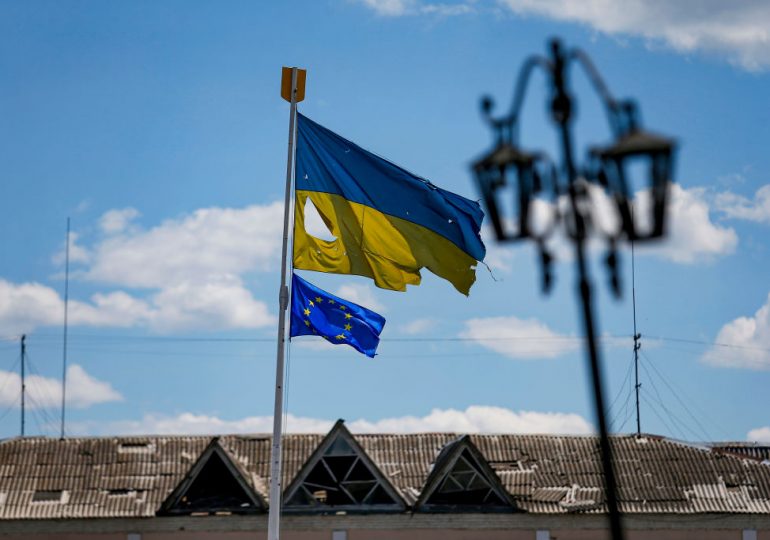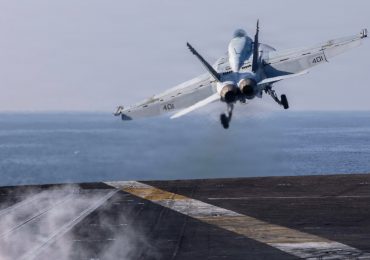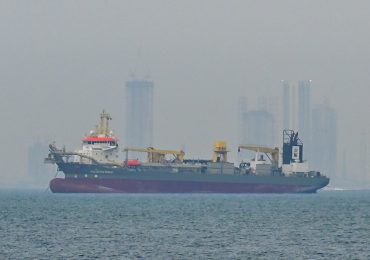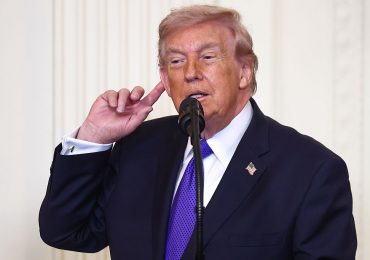Two years after Russia launched its full-scale invasion of Ukraine, and Western leaders proclaimed their full support for Kyiv, Congressional Republicans seem ready to throw Ukraine under the bus. The Republican Speaker of the House, Mike Johnson, said on CNN in January: “We all oppose Vladimir Putin and the barbarism and the aggression that he’s shown, and he must be stopped.” Yet last week Johnson blocked a vote on the $60 billion the Senate had approved for Ukraine earlier that day. If he has a plan for stopping Putin, he hasn’t yet revealed it.
[time-brightcove not-tgx=”true”]
Ukraine’s Western partners have so far supplied it with enough to defend itself and even to push Russia back from almost half the Ukrainian territory it seized in the first months of its attack. What the West has not done is to commit itself fully to ensuring Ukrainian victory, and the U.S. electoral calendar makes it unlikely that it will do so this year (or ever, if Donald Trump is elected again).
That leaves Europeans with a stark choice. They can either step up their own efforts to help Ukraine liberate its territory and the people who live there from Russian occupation, or acquiesce in a victory—sooner or later—for Putin. Some, like the right-wing Hungarian Prime Minister Viktor Orbán, would like to stop European aid to Ukraine and push it into making concessions to Putin. But that is very unlikely to command a consensus in the E.U.
Read More: How Ukraine Is Really Doing
The seemingly easier option in the short term is to keep drip-feeding help to Ukraine in quantities too small to achieve anything significant on the battlefield, in the expectation that President Volodymyr Zelensky will eventually start negotiating with Russia. Some European leaders may already be thinking in those terms: In September, Italian Prime Minister Giorgia Meloni was fooled into telling two Russian pranksters, “I see that there is a lot of fatigue, I have to say the truth… We [are] near the moment in which everybody understands that we need a way out.”
But negotiating with Putin always seems to end in tears. Even though the Minsk agreements of 2014 and 2015 gave Putin de facto control of Crimea and a slice of eastern Ukraine, seven years later he was back for more. Putin has an obsessive belief, repeated at length in his interview with Tucker Carlson on Feb. 8, that Ukraine is an inalienable part of Russia.
That’s why Europe’s leaders should take to heart former Swedish Prime Minister Carl Bildt’s June 2022 words that “Europe is at war.” Finland has joined NATO and Sweden will follow as soon as Hungary stops blocking its accession. Latvia has reintroduced conscription, and France’s next seven-year defense budget will be 40% larger than its last one. Poland plans to spend more than 4% of its GDP on defense this year. But when NATO countries meet in Washington in July to celebrate the alliance’s 75th anniversary, fewer than half will be meeting the modest target of spending 2% of GDP on defense. Almost all allies would rather that Ukraine won the war than Russia, but if that means increasing their defense budgets, well, they have other priorities.
The cost of ensuring that Ukraine inflicts a decisive defeat on Russia will be much less than the alternative. If Putin subjugates Ukraine, other former Russian imperial possessions, in particular the Baltic states, are likely to be in his sights. There are four things that Europe should do now, apart from increasing defense spending, to help avert such a fate.
Read More: Inside Volodymyr Zelensky’s Struggle to Keep Ukraine in the Fight
First, stop saying that Europe will support Ukraine “as long as it takes” and start saying that it will support Ukraine “with whatever it takes.” This is not a war that Europe can afford to lose, and its narrative, for domestic and external audiences, has to reflect that.
Second, increase efforts to ensure that Western sanctions are enforced. Above all, this means reducing the flow to Russia of Western components, technology, and machine tools that are critical to keeping its economy on a war-footing. A January 2024 report for the International Working Group on Russian Sanctions found that almost 2,800 foreign components were recovered from Russian weapons used against Ukraine—almost all of them were sourced from the West. In the first 10 months of 2023, according to the same report, Russia imported almost $8.8 billion in “battlefield goods” that Western allies had put on a priority list to prevent them from reaching the country. It is impossible to cut off the supply completely, but there are still too many companies prepared to be conveniently naïve about where these goods end up. Sanctions that make it harder for Russia to profit from the sale of hydrocarbons should also be tightened. Recent U.S. moves against the “shadow fleet” of tankers shipping Russian oil are a step in the right direction.
Third, empty Europe’s arsenals while rapidly building up its defense industrial capacity. For countries in Europe not on the frontline, there is little point in holding weapons and ammunition stocks for a rainy day. The storm has already hit Ukraine. For example, NATO countries have more than 2,000 Leopard 2 tanks, but only 130 or so have been transferred to Ukraine. Some 14 of the U.K.’s 200-plus Challenger 2 tanks have similarly been sent. The E.U., and especially the European Investment Bank, need to ensure that investment in defense is incentivized, and procure key items such as ammunition jointly, to achieve economies of scale. The U.S. and its European allies cannot at the moment match Russia’s production of artillery ammunition. The aim should be to ensure that in two to three years, Europe is supplying enough for Ukraine’s needs and simultaneously rebuilding its own stocks.
Read More: The Peril of Ukraine’s Ammo Shortage
Fourth, use the $300 billion or so in frozen Russian assets to support Ukraine economically, either by seizing them and transferring them to Ukraine, or by issuing bonds secured against them. There is a head of steam behind doing this, particularly in the U.S. The E.U. has been extremely cautious, fearing Russian retaliation against European private investors in Russia, and possible damage to the euro’s status as a reserve currency. These arguments cannot outweigh the fact that the West is holding onto huge sums of money of a country that has brutally attacked its neighbor. It would be unconscionable to hand these assets back at the end of the war, leaving Western and Ukrainian taxpayers to pick up the tab for reconstructing Ukraine.
In September 1938, British Prime Minister Neville Chamberlain infamously described Hitler’s annexation of parts of Czechoslovakia as “a quarrel in a far-away country between people of whom we know nothing.” Less than a year later, Europe had plunged into World War II. Politicians in the U.S. may see the war in Ukraine as something remote and irrelevant to their constituents. But European leaders have no such luxury. If the U.S. wakes up to the geopolitical implications of abandoning Ukraine and resumes or increases its support, so much the better. If it does not, Ukraine’s survival will depend on Europe’s willingness to do more to help it; and Europe’s security will depend on Ukraine’s ability to defeat Putin.
Leave a comment








